Marrying Vega and Zen: The AMD Ryzen 5 2400G Review
by Ian Cutress on February 12, 2018 9:00 AM ESTBenchmarking Performance: CPU Legacy Tests
Our legacy tests represent benchmarks that were once at the height of their time. Some of these are industry standard synthetics, and we have data going back over 10 years. All of the data here has been rerun on Windows 10, and we plan to go back several generations of components to see how performance has evolved.
All of our benchmark results can also be found in our benchmark engine, Bench.
3D Particle Movement v1
3DPM is a self-penned benchmark, taking basic 3D movement algorithms used in Brownian Motion simulations and testing them for speed. High floating point performance, MHz and IPC wins in the single thread version, whereas the multithread version has to handle the threads and loves more cores. This is the original version, written in the style of a typical non-computer science student coding up an algorithm for their theoretical problem, and comes without any non-obvious optimizations not already performed by the compiler, such as false sharing.
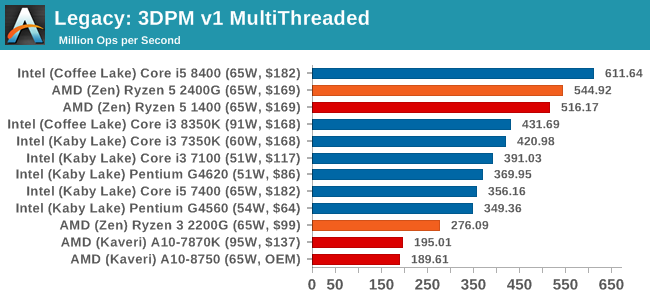
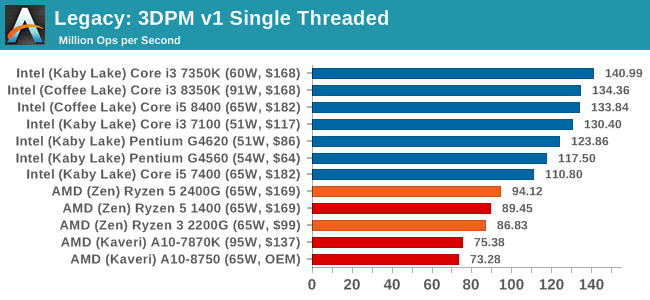
CineBench 11.5 and 10
Cinebench is a widely known benchmarking tool for measuring performance relative to MAXON's animation software Cinema 4D. Cinebench has been optimized over a decade and focuses on purely CPU horsepower, meaning if there is a discrepancy in pure throughput characteristics, Cinebench is likely to show that discrepancy. Arguably other software doesn't make use of all the tools available, so the real world relevance might purely be academic, but given our large database of data for Cinebench it seems difficult to ignore a small five minute test. We run the modern version 15 in this test, as well as the older 11.5 and 10 due to our back data.
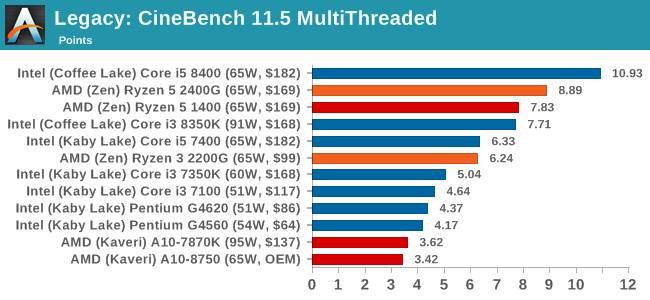
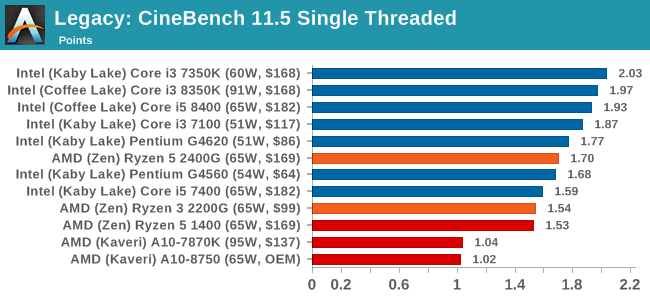
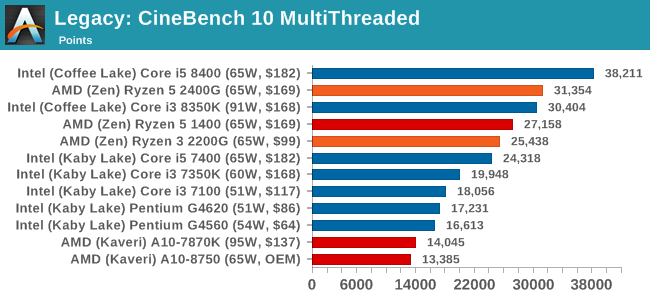
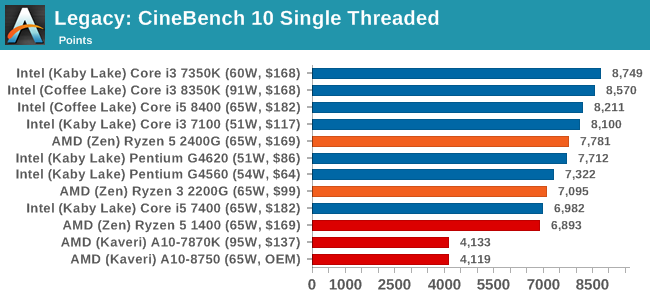
x264 HD 3.0
Similarly, the x264 HD 3.0 package we use here is also kept for historic regressional data. The latest version is 5.0.1, and encodes a 1080p video clip into a high quality x264 file. Version 3.0 only performs the same test on a 720p file, and in most circumstances the software performance hits its limit on high end processors, but still works well for mainstream and low-end. Also, this version only takes a few minutes, whereas the latest can take over 90 minutes to run.
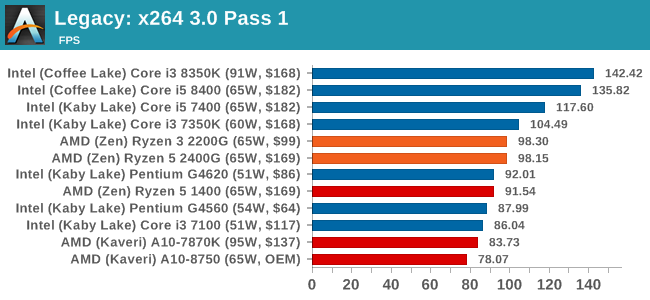
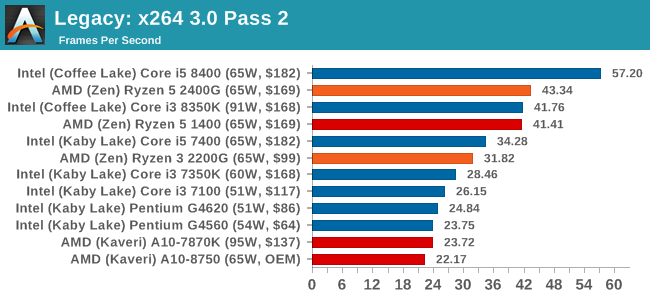










177 Comments
View All Comments
SSNSeawolf - Monday, February 12, 2018 - link
Wonderful, that's understandable. Always appreciate the time you take to slog through the comments, Ian.HStewart - Monday, February 12, 2018 - link
It might be me - unless you are really serious gamer and need high end performance, I see no reason to use a desktop CPU and GPU in todays world.Holliday75 - Monday, February 12, 2018 - link
That appears to be the case. This CPU would be my go to option for any family member wanting a PC these days. The flexibility it offers is remarkable.B3an - Monday, February 12, 2018 - link
Mistake on the Blender benchmark. The latest version is 2.79 but you've put "2.78". Being as you also have a nightly build you might even have 2.8 if you've got it from the 2.8 nightly branch. Either way you will have at least 2.79.milkod2001 - Monday, February 12, 2018 - link
Looks like decent but still 720 gaming at the best. How far away are we from 40-50fps 1080p gaming from APU?richardginn - Monday, February 12, 2018 - link
Depending on the game you are going to play you will need low settings to get 40-50fps 1080p gaming from this APU,.Yaldabaoth - Monday, February 12, 2018 - link
Great article. However, because I am a pervert, I would LOVE to see some heterogeneous GPU action going on. "Does an AMD 2400G and a nVidia 1050 make a baby that is like a 1050 TI? What about if it mated with a Vega 56 or 580?" Know what I mean? [Nudge-nudge] Know what I mean?Threska - Wednesday, February 14, 2018 - link
Heterogeneous would be an APU, not crossfire. Far as AMD's plans with HSA who knows? They're not doing much talk about it since Zen came out. Maybe they don't need it now that their single thread performance is competitive?Pork@III - Monday, February 12, 2018 - link
Core i7-8809G will smash easily Ryzen 5 2400Ganactoraaron - Monday, February 12, 2018 - link
If cost is no concern, then yes.